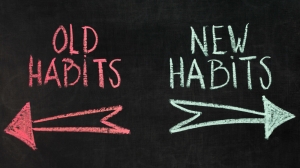In a world where everything moves at lightning speed, balance has become one of the hardest things to maintain. Between work, family, social commitments, and endless digital noise, it’s easy to feel like life is one long chain of logistics, except without a clear plan. Interestingly, the same principles that keep global supply systems efficient can also help us create calm and clarity in our everyday lives.
Companies like Supply Link USA understand this concept deeply. Their success depends on coordination, timing, and efficiency, principles that, when applied to personal well-being, can help us move from chaos to control.
By borrowing lessons from the world of logistics, we can learn how to organize our routines, streamline our priorities, and create a sense of flow in a world that constantly demands our attention.
Understanding The Power Of Systems
Behind every smooth operation lies a well-designed system. In logistics, it’s the network of warehouses, transport routes, and digital tracking that ensures everything arrives on time. In life, our systems might look like routines, boundaries, and habits, the invisible structures that support daily function.
When we lack systems, everything takes longer, stress builds, and our “mental warehouse” becomes cluttered. Just like a supply chain, personal efficiency depends on structure. Planning your day, setting reminders, and creating checklists are not acts of rigidity, they are acts of freedom. They free your mind to focus on what truly matters instead of constantly putting out fires.
A clear structure brings predictability, and predictability breeds peace of mind.
Prioritizing Flow Over Perfection
In logistics, things rarely go exactly as planned, a shipment gets delayed, demand spikes, or weather disrupts routes. Yet, successful logistics systems are built not on perfection, but on adaptability. They anticipate change, reroute when necessary, and keep moving forward.
Life operates the same way. We can’t control every disruption, from a sick child to an unexpected deadline, but we can control how we respond.
Adopting a flexible mindset allows us to recover faster from setbacks. Instead of striving for flawless balance, think of balance as a dynamic process: sometimes you’re busier, sometimes you rest more. The goal isn’t symmetry, it’s steady flow.
As the Harvard Business Review notes, resilience comes from designing systems that bend without breaking, whether in logistics or personal well-being. Adaptability, not perfection, is what keeps things running.
The Importance Of Visibility
One of the biggest revolutions in global logistics has been visibility, the ability to track shipments, monitor performance, and identify problems in real time.
In our personal lives, visibility translates to awareness. How aware are we of how we spend our time, energy, and attention? Many of us run on autopilot, reacting to daily demands without clarity about where our efforts are going.
Just as logistics managers use dashboards to track operations, we can create our own systems of visibility:
- Keep a simple journal or planner to identify time drains.
- Use technology mindfully to monitor habits (like screen time or sleep).
- Set weekly reflection sessions to assess progress and priorities.
When you “see” your life clearly, you can make informed decisions instead of emotional ones.
Efficiency Without Overload

Efficiency isn’t about doing more, it’s about doing what matters most. In logistics, efficiency means optimizing routes, reducing waste, and maximizing value at every step. In life, it’s about trimming the unnecessary and focusing your energy wisely.
Too often, we confuse busyness with productivity. But being constantly in motion doesn’t mean we’re moving forward. Simplifying commitments, delegating tasks, and saying no are not signs of weakness, they’re strategies for long-term sustainability.
Think of your life like a well-run supply system. Every task should have a purpose, every route should make sense, and every decision should serve a broader goal.
Building A Sustainable Rhythm
Just as logistics companies rely on consistent scheduling, we too need predictable rhythms to stay grounded. Morning routines, regular exercise, mindful breaks, and consistent sleep patterns all act as stabilizers. They allow our bodies and minds to recharge, preventing burnout.
But rhythm also means knowing when to pause. In business, downtime is part of optimization, systems need rest to reset and recalibrate. So do we. Taking time off, setting screen-free hours, or practicing meditation restores balance and prepares us to handle what’s next.
Turning Lessons Into Lifestyle
When you look closely, the parallels between logistics and life are striking. Both rely on structure, timing, coordination, and flexibility. Both suffer when ignored or overloaded. And both thrive when guided by intention and clarity.
The next time you feel overwhelmed, imagine yourself as the logistics manager of your own life. Identify the “bottlenecks”, tasks, habits, or people that drain you, and redesign your workflow to create smoother movement.
By introducing systems, tracking progress, and focusing on what truly adds value, you’ll find yourself operating more efficiently, but also more peacefully.
Life will always have moving parts, deadlines, responsibilities, unexpected detours. But balance doesn’t come from controlling every variable; it comes from designing systems that make chaos manageable.
Companies like Supply Link USA remind us that precision and planning aren’t just for industries, they’re principles we can live by. When we apply the same logic that keeps global networks running smoothly to our personal lives, we build something far more valuable than productivity: we build peace of mind.






